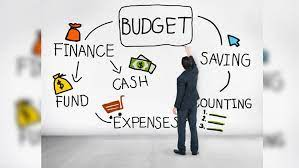The Importance Of Financial Literacy
There’s an old saying that says “money can’t buy happiness”. Well, I would say that it’s not necessarily true, because we will all grow up someday and there will be lots of expenses and many other responsibilities that we have to deal with on our own. I believe that when you have enough money to live without having to think about how you would pay those expenses will give you some sort of freedom and lift up your burden of thoughts. Therefore, I would say that money would contribute to some of your happiness. Well, there are things that money can’t buy like for instance the time you have with your loved ones. But still, with the freedom of time that money gives you, when you can spend it with those you love rather than work for money, money in the end still contributes to that happiness of yours.
There’s no denying that money is essential for human’s lives, as almost everything that we need to survive and could ease our lives requires money. But before we continue, Let’s straighten up so we have the same understanding. I'm not saying that we should earn more and more money to have a life of financial freedom, because having that much money won’t help you at all. Let me show you an example to prove my point. There is no doubt that ‘Iron Mike’ Tyson was one of the world’s greatest fighters. But even with earnings of more than $400 million during his boxing career, Tyson filed for bankruptcy in 2003, when his debts of $26 million suddenly overwhelmed him: $9 million in a divorce settlement, $13 million to the US Internal Revenue Service (IRS) and $4 million to British tax authorities. So what I’m saying is earning a lot of money wouldn’t help you, but financial literacy does. What is financial literacy? Financial literacy is the possession of the set of skills and knowledge that allows an individual to make informed and effective decisions with all of their financial resources. Financial literacy includes saving, investing and debt that leads to an overall sense of financial well-being and self-trust. When you could earn a lot of money, but not accompanied with the skills and mentality to maintain your earnings by not spending more than you earn, you won’t be able to taste that financial freedom. Even people with minimum wage could live comfortably if they could manage their finances the right way.
But as a student myself, I don’t really feel that my school has taught me enough about financial skills and how to handle all the money that I would have. So, is it really not that necessary for young people to learn about it yet? In my opinion, why not? Actually, the younger young people learn about money the better their generation will be when it comes to wealth and prosper living. It doesn’t have to be complex, children at the age of five can learn about money savings by giving them a piggy bank and teaching them the right way to save their money. As a matter of fact, the productive age in Indonesia is from 15 - 64, which shows us that 15 year olds are considered able to work and earn their own money, therefore it is normal or even better for them to learn about finance from a very young age. Even if you’re not going to work anytime soon, you still have to learn about how to manage your money to prepare you for the uncertain future. But it is not too late even though you are now a high school student or even an adult when it comes to learning about money, because that subject is always relevant no matter how old we are, money will always revolve around us. As for people who want to learn, thankfully we live in a generation where information is free and easy to get. You could learn thousands of valuable things from the internet with lots of choices of learning methods, whether through videos, podcasts, or texts. I hope this message could spread some sense of awareness about the importance of financial literacy, and that there is no “the right time” to learn about it, except right now.
Written by Jason Jahja / XIIA3 / 14


Comments
Post a Comment